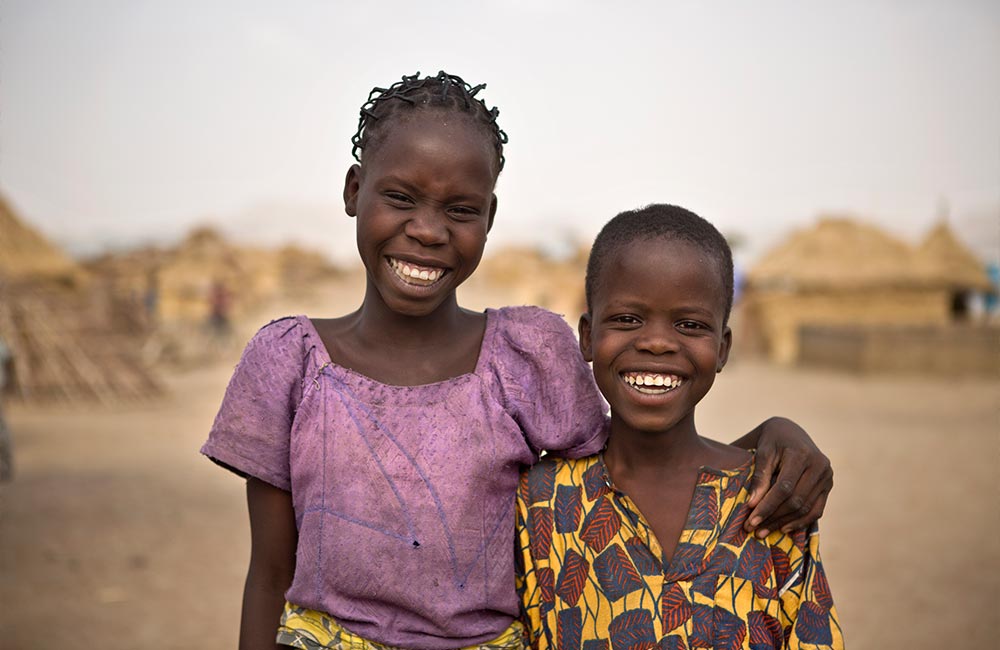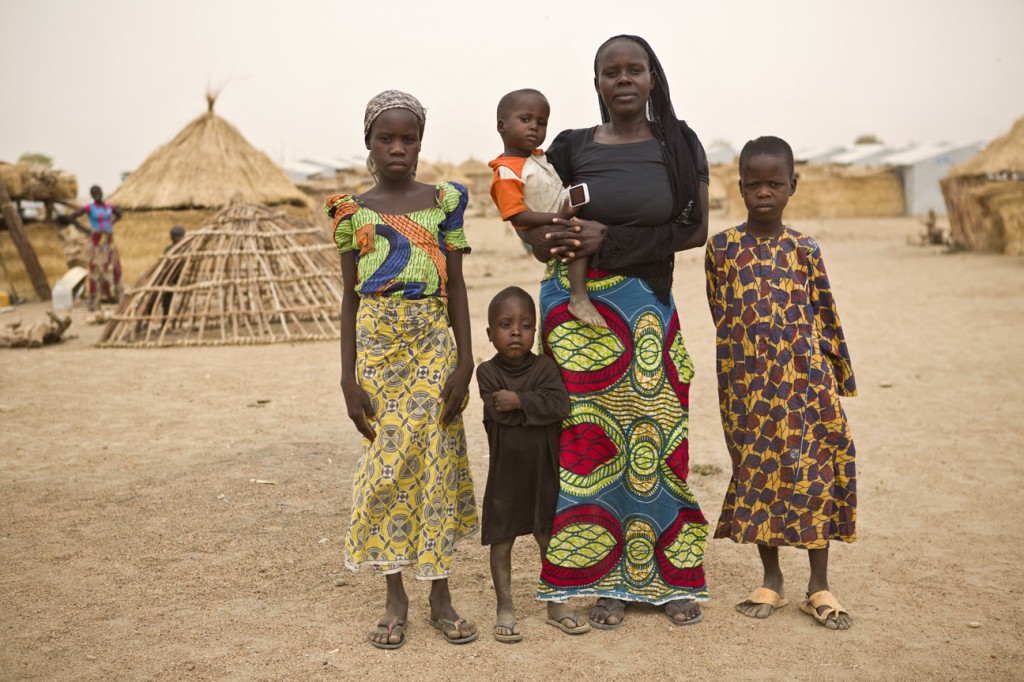English student. Brother. Footballer.
“I am alive thanks to my sister.”
Ibrahim, 10 years old: “My mother is proud of me. She says that I am smiling again, I am playing football and I’m attending school. I also have a best friend. I go to school every day in the camp. I love learning English and I love my English teacher. Her name is Sheila. We sing and we dance in class with our teacher. We repeat the English words after her and we count from zero to 100. Sometimes, there are a lot of children, more than 100 in only one class and it is hard to concentrate.
After school I play football with my big sister Larama and my little brother Lucas. We play in front of our shelter in the camp and other children join us.”
Little by little, 10-year-old Ibrahim is recovering from his ordeal. When his village in Nigeria was attacked, insurgents murdered his father and hit Ibrahim in the head with a machete. They then threw him into a pit, leaving him for dead. His sister, 13-year-old Larama, found him.
“Larama saved me,” Ibrahim says. “She found out where the insurgents had buried me.” He spent four and a half months in hospital. The family now lives in Minawao refugee camp, Cameroon. Opened in July 2013, it hosts some 33,000 Nigerian refugees.
Refugees. Ordinary people living through extraordinary times.
At least 1.2 million people have been displaced within north-eastern Nigeria since May 2013. Insurgent violence has forced another 192 thousand people to flee their homes seeking safety in neighbouring states.
UNHCR is identifying and registering school age children to help ensure education needs are met. While Ibrahim’s class is overcrowded, he is one of the lucky refugee children who have the opportunity to attend class. The overall funding picture for the Nigeria operation is bleak – currently it has received less than ten percent of needed resources.




